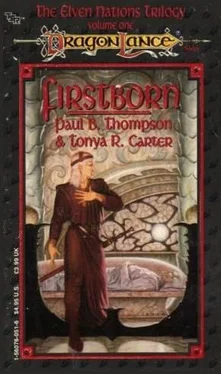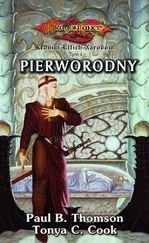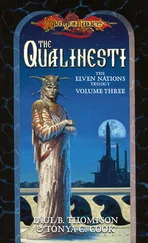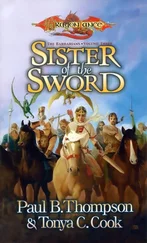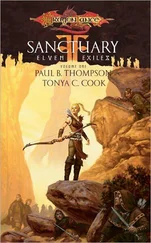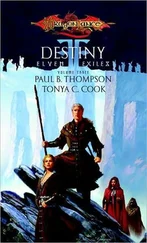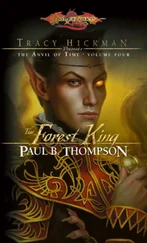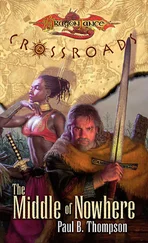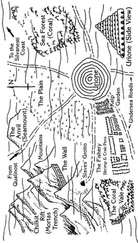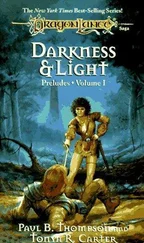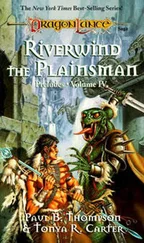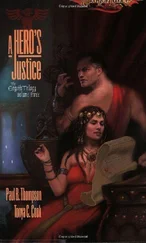Paul Thompson - Firstborn
Здесь есть возможность читать онлайн «Paul Thompson - Firstborn» весь текст электронной книги совершенно бесплатно (целиком полную версию без сокращений). В некоторых случаях можно слушать аудио, скачать через торрент в формате fb2 и присутствует краткое содержание. Жанр: Фэнтези, на английском языке. Описание произведения, (предисловие) а так же отзывы посетителей доступны на портале библиотеки ЛибКат.
- Название:Firstborn
- Автор:
- Жанр:
- Год:неизвестен
- ISBN:нет данных
- Рейтинг книги:3 / 5. Голосов: 1
-
Избранное:Добавить в избранное
- Отзывы:
-
Ваша оценка:
- 60
- 1
- 2
- 3
- 4
- 5
Firstborn: краткое содержание, описание и аннотация
Предлагаем к чтению аннотацию, описание, краткое содержание или предисловие (зависит от того, что написал сам автор книги «Firstborn»). Если вы не нашли необходимую информацию о книге — напишите в комментариях, мы постараемся отыскать её.
Firstborn — читать онлайн бесплатно полную книгу (весь текст) целиком
Ниже представлен текст книги, разбитый по страницам. Система сохранения места последней прочитанной страницы, позволяет с удобством читать онлайн бесплатно книгу «Firstborn», без необходимости каждый раз заново искать на чём Вы остановились. Поставьте закладку, и сможете в любой момент перейти на страницу, на которой закончили чтение.
Интервал:
Закладка:
His reverie was broken when he rounded a corner in the hedges and found Hermathya seated alone on a stone bench.
Kith-Kanan briefly considered turning and avoiding his former lover, but he decided that he couldn’t hide from her forever. Instead of leaving, he went up to her and said hello.
Hermathya did not look up at him, but gazed off into the blossoms and greenery. “I woke up this morning thinking I had dreamed you returned. Then I asked my maidservant, and she said it was true.” Her voice was low, controlled, and her hair shone in the sunlight. She wore it pulled back in a jeweled clasp, as befitted a high-born, married elf woman. Her pale arms were bare, her skin smooth and unblemished. He thought she was even more beautiful than when he’d left Silvanost.
She asked him to sit. He declined.
“Are you afraid to sit next to me?” she said, meeting his eyes for the first time. “It was once your favorite place to be.”
“Let’s not bring up the past,” Kith-Kanan said, keeping his distance. “That’s over and done with.”
“Is it?” Her eyes, as always, caught and held him.
He was intensely aware of her, as near as he was, and she stirred him. What elf could be so close to her flame-bright loveliness and not be moved? However, Kith-Kanan no longer loved Hermathya; he was certain of that.
“I’ve been married,” he said pointedly.
“Yes, I heard that last night. Your wife is dead, isn’t she?”
No, only changed, he thought. But he replied, “Yes, she is.”
“I thought about you a great deal, Kith.” Hermathya said softly. “The longer you were away, the more I missed you.”
“You forget, Thya, I asked you to flee with me—and you refused.”
She seized his hand. “I was a fool! I don’t love Sithas. You must know that,” she exclaimed.
Hermathya’s hand was smooth and warm, but Kith-Kanan still pulled his hand free of hers. “He is your husband and my brother,” he said.
She didn’t hear the warning in his statement. She leaned her head against him. “He’s a pale shadow of you, as a prince…and a lover,” she said bitterly.
Kith-Kanan moved away from the bench. “I have no intention of betraying him, Thya. And you must accept the fact that I do not love you.”
“But I love you!” A tear trickled down her cheek.
“If that’s true, then I pity you. I have passed into another life since we loved each other, years ago. I’m not the headstrong young fool I once was.”
“Don’t you care for me at all?” she asked, her face anguished.
“No.” he said truthfully, “I don’t care for you at all.”
One of Dunbarth’s dwarven servants came running through the maze of hedges. “Great prince!” he said breathlessly. “The speaker is recalling the assembly.”
Kith-Kanan walked away and did not look back at Hermathya, though he could hear her crying until he reached the entrance to the Tower of the Stars.
When he was out of earshot, Hermathya clenched her eyes shut, squeezing the tears from them. “So be it,” she hissed to herself. “So be it.” She picked up the golden goblet Kith-Kanan had left nearby and bashed the soft metal against the marble bench. The goblet was soon a twisted, misshapen lump.
The afternoon session dragged on as the three sides tried to decide who would govern the proposed buffer state. It was a tricky question, and every suggestion that came up was debated and discounted. Clerics and guildmasters from the city grew tired of the endless discussion and drifted away, thinning the crowd in the audience hall. After a time, Praetor Ulwen’s head nodded forward. His wife looked like she wanted a long nap herself.
“I can’t agree to give away mineral rights or crop-growing rights,” Teralind said testily, for the third time. “How do you expect our people to live? They can’t all herd cattle.”
“Well, your idea to have enclaves belonging to different nations is no solution,” Sithas said, tapping the arm of his chair to emphasize each word. “Instead of one large disputed territory, we’ll have scores of tiny ones!”
“Separate communities might be the answer,” mused Dunbarth, “if they are able to trade with each other.”
“They would fight over the choicest land,” the speaker said. He rubbed a hand against his left temple. “This is getting nowhere. Surely one of us can come up with a fair and adequate solution.”
No one said anything. Kith-Kanan shifted nervously in his seat. He had said virtually nothing during this session. Something Anaya had mentioned to him once was nagging at him. “I don’t meddle with the forest. I just protect it.” Perhaps that was the answer.
The prince stood quickly. The sudden movement startled everyone; they’d practically forgotten he was there. Sithel looked at his son questioningly, and Kith-Kanan self-consciously straightened the folds of his white robe.
“It seems to me,” he said with dignity, “that the entire problem with the western provinces comes from the fact that new settlers are pushing the old ones out. No one here, I think, would defend such activity.” Sithas and Dunbarth glanced at Teralind. She put her nose in the air and shrugged.
Kith-Kanan moved to the center of the floor. Sithas shifted restlessly as all eyes fixed on his brother. “If everyone is agreed upon the principle that all persons, regardless of race, have a right to settle on empty land, then the problem becomes a simple one—how to protect the legitimate settlers from those who seek to drive them off their land.”
“I sent soldiers once,” said the speaker flatly. “They were betrayed and slaughtered.”
“Forgive me, Father,” Kith-Kanan said, “but from what I have heard of the incident, they were too few and not the right kind of soldiers. If we are going to share the bounty of these lands, then the burden of protecting them must be shared. Soldiers from the city have no stake in the area; they simply obey the orders of the speaker.” The prince looked around at the company. “Do you not see? What’s needed is a local force, a militia, in which the farmer has his own shield and spear with which to protect his land and that of his neighbor.”
“Militia?” said Teralind with interest. Ulvissen was suddenly at her elbow trying to tell her something.
“Arm the farmers?” asked Dunbarth. The brim of his hat had lost its snap and drooped down over his eyes. He brushed it back.
“Peasants with spears would never stand up to mounted bandits,” asserted Sithas.
“They would if they were trained and led by experienced soldiers,” Kith-Kanan countered. He was thinking on his feet now. “One sergeant for each company of twenty; one captain for each band of two hundred.”
“Are you speaking of all settlers in the disputed lands being armed?” asked Dunbarth. “Even those not of elven blood?”
“Definitely. If we arm one group and not another, it’s just an invitation for war. A mixed militia will bind the people together, serving shoulder to shoulder with men of other races.”
“I still say farmers and cow herders will never catch a fast-moving party of raiders,” Sithas said stiffly.
Kith-Kanan’s enthusiasm brought him right up to his brother’s chair. “Don’t you see, Sith? They don’t have to catch the bandits. They only have to be able to fend them off. Why, the ruined village Mackeli and I saw had a sod wall eight feet high all around it. If the villagers had had a few spears and had known how to fight, they all might have been saved.”
“I think it is an excellent idea,” Sithel remarked.
“I like it, too.”
Kith-Kanan swiveled around to see if what he’d just heard was true. Teralind was sitting proudly, hands folded on the lap of her burgundy gown. “I like it,” she repeated firmly. “It puts the responsibility on the people living there.” Behind her Ulvissen was livid with ill-suppressed anger. “No army need be sent in, yours or ours. The emperor will save much money.”
Читать дальшеИнтервал:
Закладка:
Похожие книги на «Firstborn»
Представляем Вашему вниманию похожие книги на «Firstborn» списком для выбора. Мы отобрали схожую по названию и смыслу литературу в надежде предоставить читателям больше вариантов отыскать новые, интересные, ещё непрочитанные произведения.
Обсуждение, отзывы о книге «Firstborn» и просто собственные мнения читателей. Оставьте ваши комментарии, напишите, что Вы думаете о произведении, его смысле или главных героях. Укажите что конкретно понравилось, а что нет, и почему Вы так считаете.
